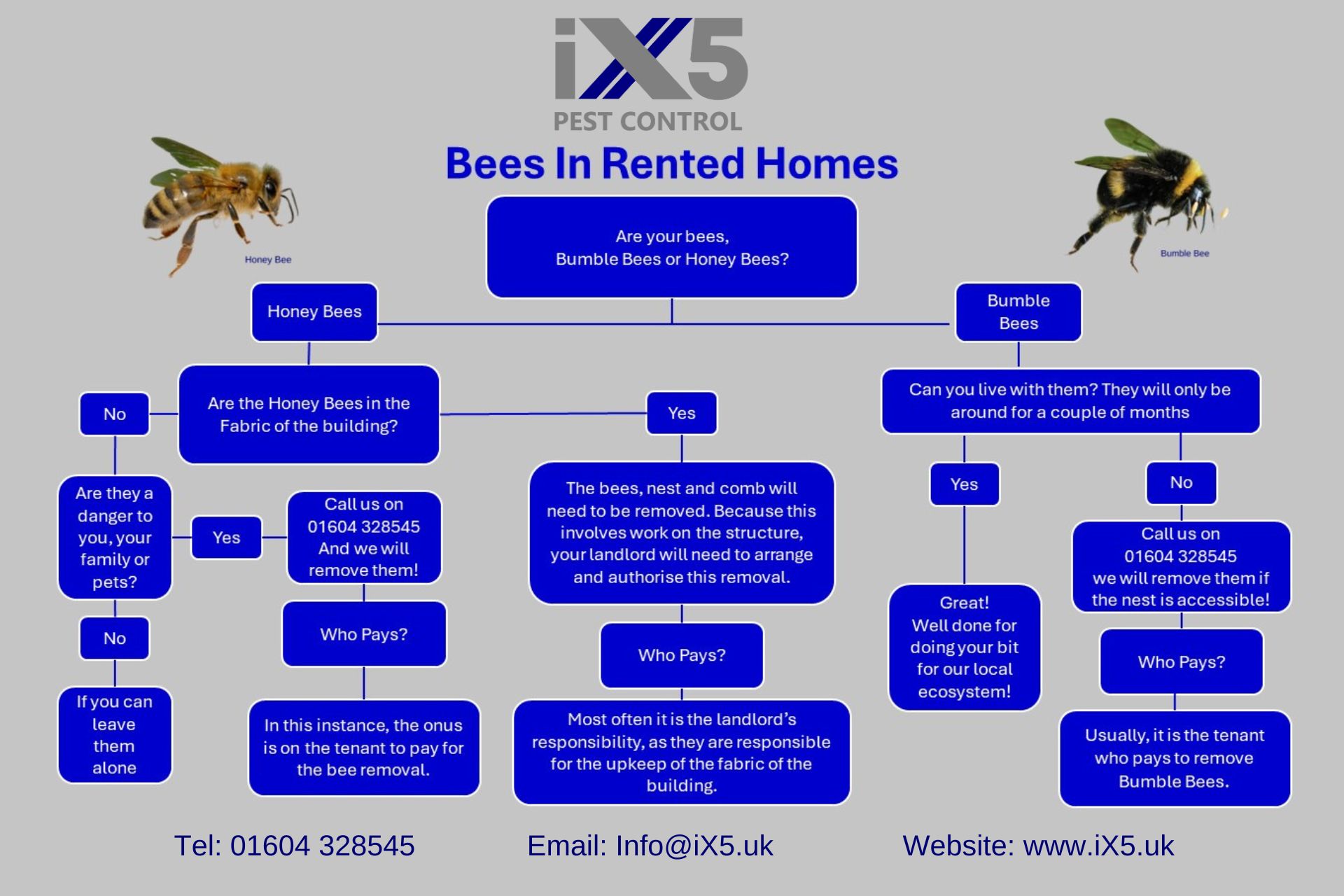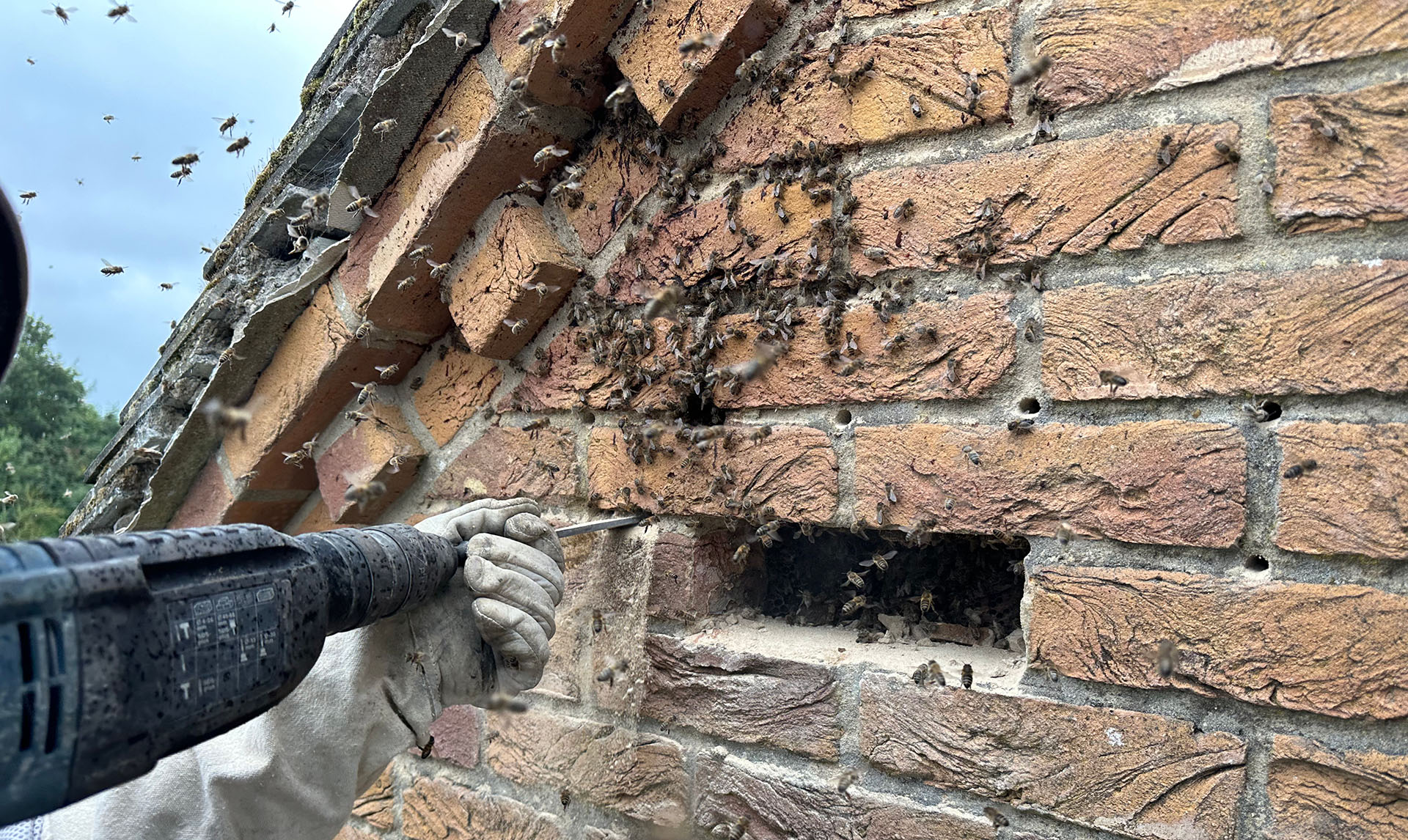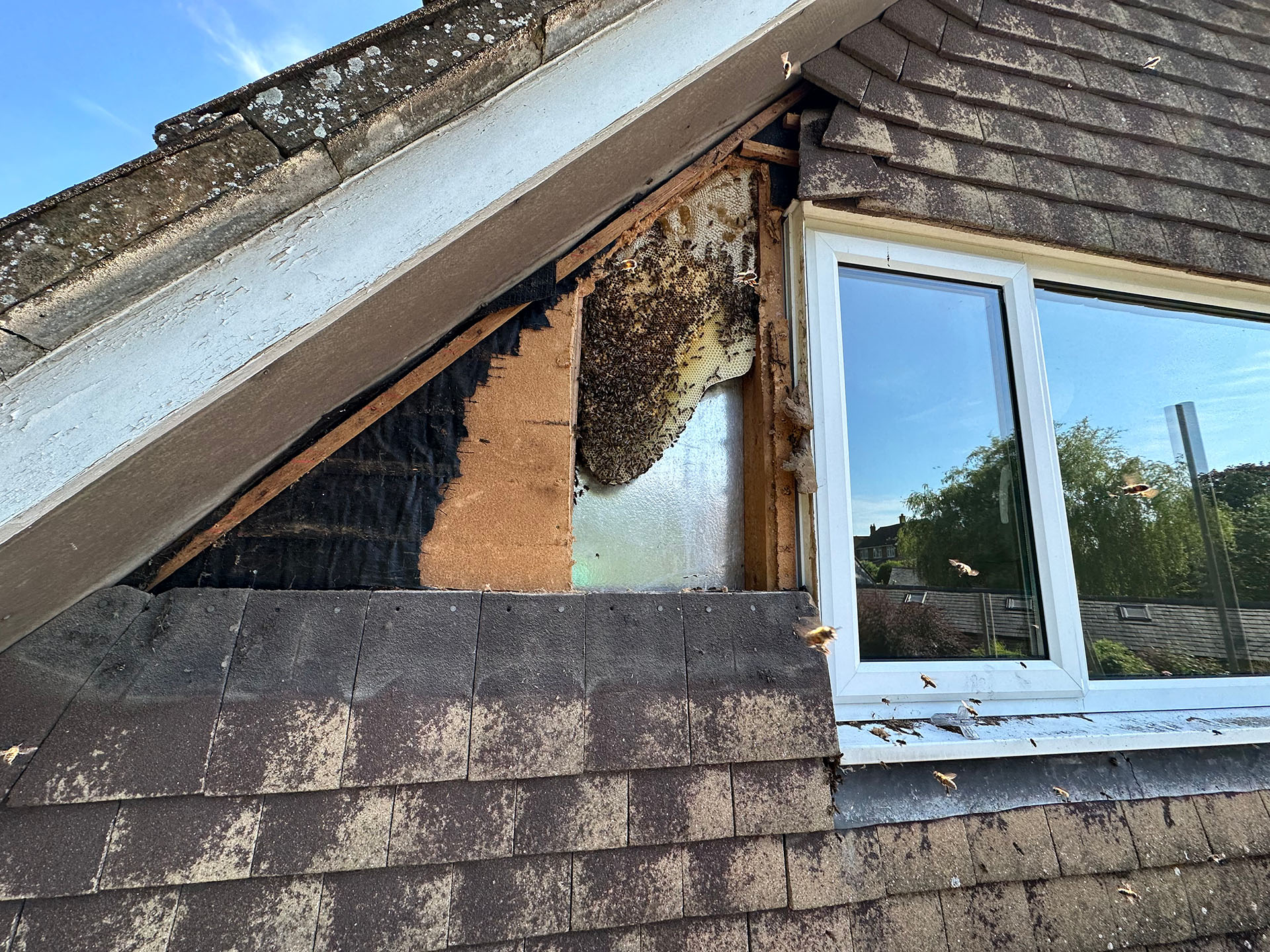Bee Advice For Tenants
If you live in a rented property and suddenly find you have a swarm of honeybees take up residence, or you find you have moved into a property which already has honeybees living in the building, the information below is intended to assist you understand who is responsible for dealing with the problem.
Check Your Tenancy Agreement
You should have a tenancy agreement from the start of your tenancy, and this should set out roles and responsibilities in respect of pest control, amongst other things. It is evident that some Housing Associations and private landlords have tenancy agreements which set out that tenants are responsible for resolving any pest activity during the term of their tenancy. Whilst in some instances, this might be true, it is not always the case. Just because there may be something written in a tenancy agreement doesn’t mean that the clause is fair or legally enforceable.
So, Who Is Responsible?
Where pest activity is due to the behaviour of a tenant then it would be reasonable to hold them responsible for resolving this. Examples of this might include tenants leaving open food waste outside which causes an infestation of rats in the garden; or tenants bringing bedbugs or cockroaches back in their bags or suitcases from travel. This pest activity has not been caused by the actions or inactions of the landlord, or by the condition of the property.
However, where any pests are present in a rented property due to structural defects or an inherent unsatisfactory design of the building, then this will be the responsibility of the landlord to resolve. Examples of this might be internal rat activity caused by defective or unsuitable drainage, or honeybees taking up residence in a disused chimney flue or wall cavity.

When Pest Control Requires Altering the Fabric of the Building
Taking account of the nature of work, and costs involved in removing a honeybee colony from a rented property, it would be unreasonable for a landlord to expect a tenant to foot the bill for this. Live removals usually involve opening up the structure of a building (removing bricks from walls, plasterboard from ceilings, or opening up a chimney flue by removing brickwork or flaunching), and notwithstanding the legal aspects, any landlord would no doubt also have significant concern if a tenant was to organise this without their involvement and consent. The same can be said with undertaking works to drains to prevent further rat activity. This work is usually well outside the scope of anything that may routinely be covered in a standard tenancy agreement.
Pest Control and the Law
In 2019 a new law came into force in England to make sure that rented houses and flats are ‘fit for human habitation’, which means that they are safe, healthy and free from things that could cause serious harm. This includes pests.
The Homes (Fitness For Human Habitation) Act 2018 sets out the legal background to pest activity in a rented property, including the rights of tenants. This includes tenants who rent privately, or from a Housing Association or their local Council. A guide to this legislation for tenants can be found here.
If rented houses and flats are not ‘fit for human habitation’, tenants can take their landlords to court. The court can make the landlord carry out repairs or put right health and safety problems. The court can also make the landlord pay compensation to the tenant. This applies in England only.
Pest activity is one of the 29 hazards listed in the Housing Health and Safety Ratings Scheme, which was introduced in England and Wales under the Housing Act 2004.
If you are unsure of your situation regarding pest activity in a rented property, you can always contact your local Citizens Advice service for support or advice. The Housing Ombudsman can also help with taking action against landlords that fail to deal effectively with pest activity. They have published guidance on pests for landlords and tenants here.

What to do if you believe your Landlord is Responsible
We recommend the following process for tenants in rented properties who find they have pest activity they believe is not down to their actions / inaction or behaviour:
- Contact your landlord or letting agent at the earliest opportunity to outline the situation, and the seriousness and extent of activity. Ask them to investigate promptly. If you report this over the telephone, this should be followed up in writing so you have a record of everything.
- Landlords (or their agents) should respond promptly and set out a plan for investigating the concerns raised. They should then communicate what actions are going to be taken, along with a timescale for this. Landlords should have a policy in place for how they deal with complaints of pest activity. If you have not been provided with this, or it is not available on their website, you may wish to request a copy.
- It is important to ensure ongoing communications with the landlord while activity continues, and particularly informing them immediately should the situation worsen. You should keep copies of all communications.
- If a landlord does not respond or act within a reasonable timescale, you may wish to consider raising the matter with the Private Sector Housing / Housing Regulation Team at your local authority, as they have powers to investigate housing conditions complaints. If you do not know which local council area you are located in, you should be able to find this by looking at your Council Tax bill or you can check on the .Gov website here using your postcode.
- All Housing Associations and some landlords may have a formal complaints process. You should use this if you feel they are not acting promptly in handling your complaint, or if they have simply advised that the pest activity is your responsibility when it is caused by something other than your behaviour.
- If you remain unsatisfied with your landlord’s response, there are an increasing number of solicitors who will get involved in housing conditions cases, and these can be found through an internet search. They should be able to advise on whether there is merit in pursuing a legal case against the landlord.
What to do if you realise that you are responsible or if you are unsure
Call us, we don’t mind having a chat. If you are responsible for the pest activity, we can help you to resolve this and will happily give advice on how to prevent a recurrence. In all cases this will need to be dealt with promptly to avoid escalation.
iX5 Pest Control
We offer pest control and bee removal services for homes and businesses in Northampton, Daventry, Rugby, Market Harborough, Towcester, Brackley, Wellingborough, Kettering, Corby, Olney and all of the surrounding areas. Our team of specialists are available both evenings and weekends at no extra cost. Should you require assistance call us on 01604 328545, email [email protected] or use our simple contact form.
You may wish to read our other blogs on honeybees in buildings at:
https://www.ix5.uk/why-live-removal-is-preferred-over-eradication-for-honeybees/
https://www.ix5.uk/why-live-removal-is-preferred-over-eradication-for-honeybees/

